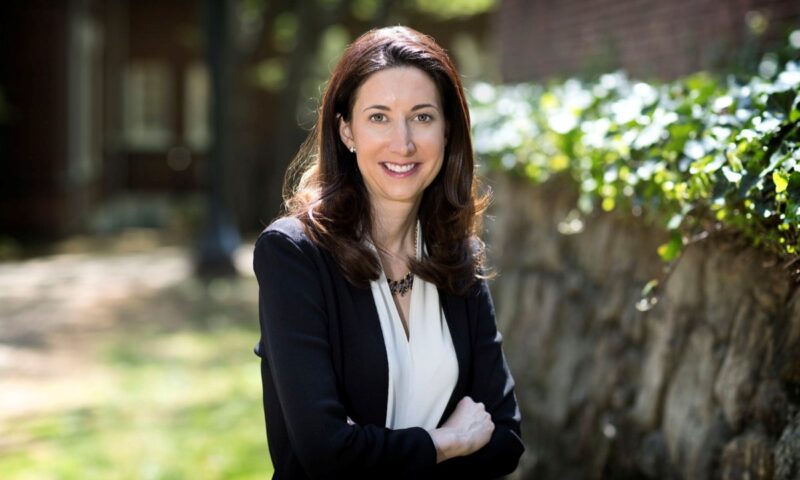By Bryan McKenzie, bkm4s@virginia.edu
Higher property insurance premiums and lower damage coverage are becoming the reality for property owners in areas prone to floods, hurricanes, and wildfires, according to insurance industry consultants and UVA McIntire Professor W Ben McCartney.
Hurricane Idalia blew ashore last week, with winds of 90 mph and a 12-foot storm surge that brought flooding and destruction for millions of people—and billions of dollars of claims to insurance companies.
The hurricane’s hardest impact was in Florida, where initial damage estimates were set at about $9 billion. While that’s far less than the estimated $200 billion in damage from last year’s Hurricane Ian, it comes on the heels of major nationwide insurers pulling out of the state.
In July, AAA and Farmers Insurance announced they were leaving the state, citing the growing cost of natural disasters and construction. More than a dozen property insurance companies in Florida have folded in the past few years.
“Living in places where the risk of bad losses has increased has become more expensive,” McCartney said.
McCartney’s research focuses on how social interactions, civic engagement, and politics connect with household finance, real estate, and urban economics.
When a natural disaster unfolds, it’s likely everybody pays, he explained. “It could be property owners, through higher insurance rates or down payments. It could be insurance companies, through higher claim payouts. It could be lenders, whose borrowers just default in the event their homes flood or burn down, or it could be taxpayers in not-at-risk places, who subsidize people living in risky places via government programs, the National Flood Insurance Program being the most obvious.”
As companies retreat, property owners are left to search for coverage that often costs more and covers less—if it can be found at all. Even the nonprofit government agency Citizens Property Insurance Corporation, created by the Florida legislature in 2002 to sell insurance to residents who couldn’t buy it from private underwriters, is reeling, with funds depleted from Hurricane Ian. That means the last-resort insurer will need to significantly raise its premiums and fees.
Florida’s insurance problems are not isolated. California, Texas, Louisiana, and even Virginia’s coastal region have seen insurers pack up and move out. While they cited a variety of reasons, primary was the rising cost of covering natural disasters, from hurricanes and floods to fires.
In June, Allstate stopped selling homeowners’ insurance policies in California. The announcement came a week after State Farm made the same announcement.
The reason for the major insurers to leave California are twofold, McCartney said.
“Part one is that the dollar amount of the claims Allstate expects to pay out has gone up. This is because the risk of a loss is higher and the replacement cost, given that a loss occurs, is also higher.”

W Ben McCartney said living in areas prone to natural disasters and property losses has become more expensive for everyone from property owners to insurance companies. (Contributed photo)
To profitably sell insurance in California, insurers must raise rates. But the state has rules limiting rate increases. McCartney said the insurance companies may be using their size as bargaining power to get the state to change rules.
Many states have programs offering subsidies for homeowners who “harden” their properties against floods, storms, and fires, but those subsidies may worsen race and income disparities.
“The people who are good at getting subsidies in this country are the wealthy elite, who have the resources and know-how to navigate the political system,” McCartney said. “Florida, for example, has spent a ton of money trying to protect its beaches and shorelines from sea-level rise risk. But this money has been spent disproportionately in and around the neighborhoods inhabited by wealthy, mostly white people.”
If insurance companies continue to withdraw from areas at high risk of natural disasters, options for homeowners are limited, McCartney noted.
“Option one is to self-insure. But it’s impossible to get a mortgage without insurance. So, this option would only be available to very rich people,” he said. “Option two is to move.”
Some states and localities have programs to help relocate people from hazard-prone locations. Others make rebuilding more difficult through permits. North Carolina has building restrictions for oceanfront properties that require homeowners in Outer Banks towns like Kitty Hawk to meet new setbacks from beaches and other regulations to get a rebuild permit.
“Kitty Hawk isn’t going to make anybody sell their homes, but they do make it hard to build new homes on the beach. Eventually this will mean there are no homes there,” McCartney said. “Living on the beach is risky. If people want to take on that risk, then they can go for it. The problem, in my mind, arises when they ask others to foot the bill for that decision.”
This story was originally published on UVA Today Sept. 5, 2023.



